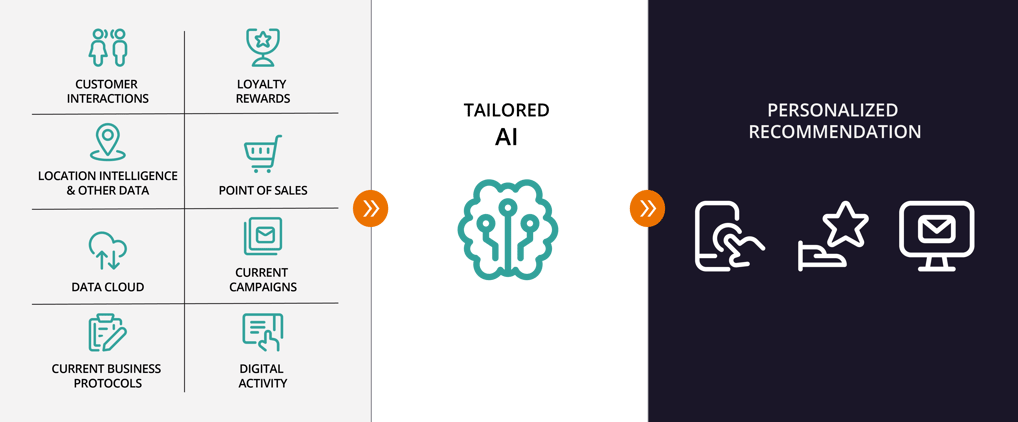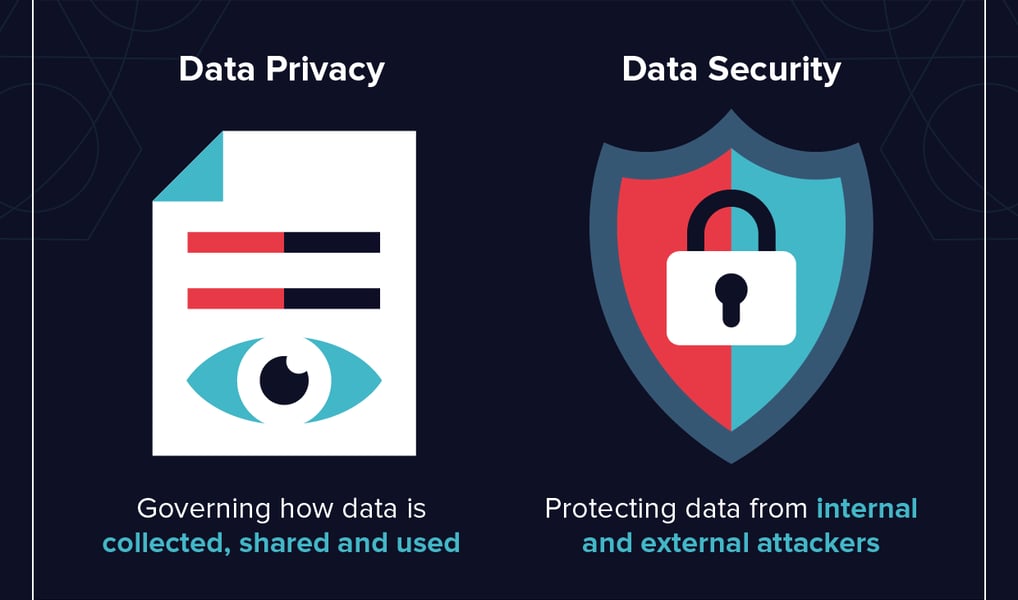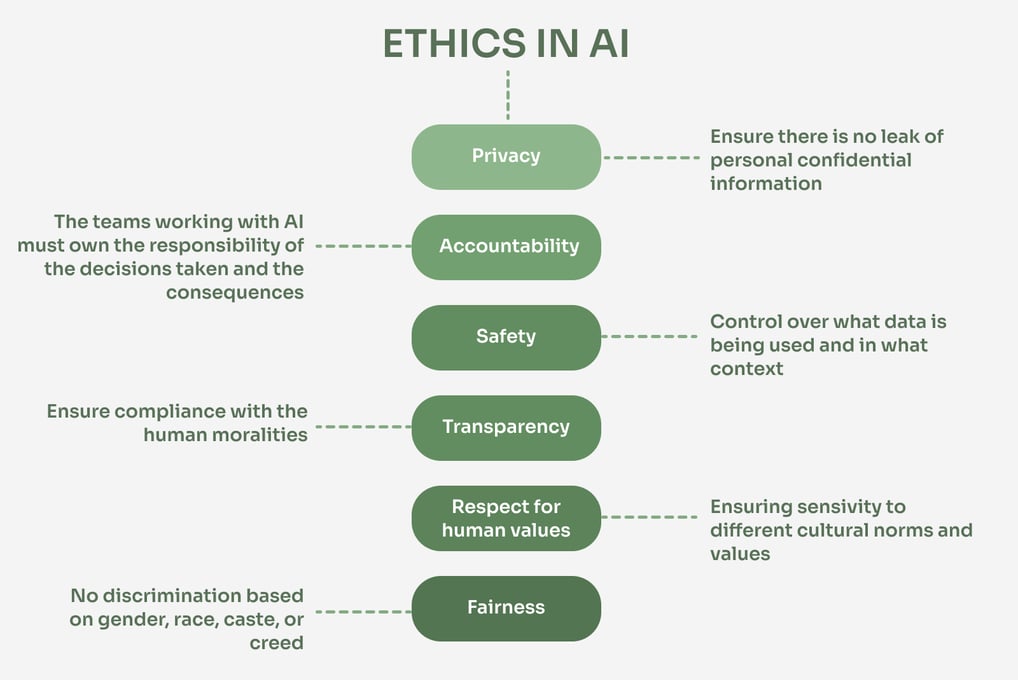Ethical AI in Digital Marketing: Balancing Personalisation and Privacy
This article explores how businesses can leverage artificial intelligence (AI) to create personalised marketing experiences while respecting user privacy. It defines Ethical AI and its importance in ensuring fairness, transparency, and societal values in marketing practices. Key topics include the benefits of AI-driven personalisation, such as enhanced user engagement and tailored recommendations, juxtaposed with privacy concerns like data misuse, lack of transparency, and over-collection of user data. The blog highlights regulatory frameworks like GDPR and CCPA as safeguards and discusses innovative technologies like Federated Learning and Privacy-Preserving AI that enhance privacy without compromising personalisation. It concludes with actionable best practices for implementing Ethical AI in marketing, emphasising transparency, trust-building, and responsible AI usage to foster long-term customer loyalty and compliance with ethical standards.
ETHICAL AI IN MARKETINGMARKETING
Toshak Kadam
1/21/20253 min read


The intersection of artificial intelligence (AI) and digital marketing has unlocked unparalleled opportunities for businesses to connect with their audiences. AI-driven personalisation has become a cornerstone strategy, enabling marketers to deliver tailored content and offers to specific audiences. However, as personalisation becomes increasingly sophisticated, the ethical implications of privacy have taken centre stage. Finding a balance between personalisation and privacy is one of the most significant challenges marketers face today.
This blog explores these considerations and provides actionable insights on navigating this complex landscape.
What is Ethical AI?
Ethical AI involves developing and deploying artificial intelligence systems that align with human values, fairness, and societal norms. Ethical AI ensures that algorithms respect user privacy while delivering tailored experiences in digital marketing. This involves addressing critical issues such as transparency, fairness, and consent.
The Power of Personalisation
Personalisation leverages AI to analyse consumer behaviour, preferences, and purchase histories, creating highly targeted campaigns. Here are some benefits:
Enhanced User Experience
Platforms like Netflix’s recommendation system and Amazon’s “Customers Also Bought” feature showcase how personalisation can predict user preferences.
Improved Engagement
According to Statista, personalised emails and ads achieve a 29% higher open rate and a 41% increase in click-through rates (CTRs).
Customer Loyalty
Consumers who feel understood and valued are likelier to remain loyal to a brand.
Efficiency
Companies can optimise resources by focusing on strategies that resonate with specific target groups.


The Privacy Dilemma
While personalisation drives engagement, it often relies on extensive data collection, which poses significant privacy risks. Key concerns include:
Data Collection and Misuse
Excessive tracking through cookies and apps.
Cases like the Cambridge Analytica scandal highlight how personal data can be exploited.
Lack of Transparency
Users often remain unaware of how their data is collected and used.
Data Security
The increased volume of data collected heightens the risk of breaches, potentially compromising sensitive information.
Surveillance Concerns
Over-reliance on AI for personalisation can lead to feelings of discomfort and distrust as users feel constantly watched.




How Ethical AI Bridges the Gap
Ethical AI aims to harmonise the benefits of personalisation with the need for privacy. Here are some strategies:
Transparency in Algorithms
Excessive tracking through cookies and apps.
Cases like the Cambridge Analytica scandal highlight how personal data can be exploited.
Consent-Based Marketing
Users often remain unaware of how their data is collected and used.
Data Minimization
The increased volume of data collected heightens the risk of breaches, potentially compromising sensitive information.
Regulatory Landscape
GDPR (General Data Protection Regulation)
The EU’s GDPR mandates strict consent and data usage guidelines, empowering users to control their data.
CCPA (California Consumer Privacy Act)
This U.S. law grants users the right to know, delete, and opt out of data collection.
AI Ethics Committees
Companies are forming dedicated teams to oversee ethical AI practices and ensure compliance with regulatory requirements.


Best Practices for Ethical AI in Digital Marketing
Adopt Privacy-First Strategies
Implement consent management tools.
Use AI to anonymise data wherever possible.
Build Trust Through Transparency
Develop clear privacy policies.
Regularly update users on how their data is managed.
Use AI Responsibly
Test algorithms to avoid biases.
Ensure AI systems promote fairness and inclusivity.
Strengthen Security Measures
Encrypt data and conduct regular security audits.
Comply with established data protection regulations such as GDPR and CCPA.
Educate Consumers
Inform users about how personalisation works and the benefits it provides.
Emphasise ethical considerations to build trust.
The Future of Ethical AI in Marketing
Emerging technologies like Federated Learning and Privacy-Preserving AI pave the way for safer, user-centric digital environments. These innovations ensure that personalisation can continue to evolve without compromising privacy. By embracing ethical AI, brands can gain consumer trust and drive long-term loyalty.
Federated Learning
This approach allows AI models to learn from user data without storing it on central servers, enhancing privacy.
Privacy-Preserving AI
Techniques such as differential privacy ensure that individual data points cannot be traced back to users.
Conclusion
Ethical AI is a trend and a necessity in today’s privacy-conscious era. By balancing personalisation and privacy, businesses can unlock AI's true potential while respecting user rights. Marketers who adopt transparent practices, prioritise consent, and safeguard consumer data are well-positioned to build lasting relationships with their audiences. In this evolving landscape, the commitment to ethical AI is both a legal obligation and a moral imperative—ensuring a future where personalisation and privacy coexist harmoniously.
